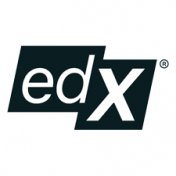FinTech has started a global revolution in the financial services industry, and the transformation will only increase in coming years. There are many ways in which FinTech can improve the lives of people around the world; however, those same technologies can also be used to enslave, coerce, track, and control people. Accordingly, it is appropriate and necessary to consider the implications of the introduction of these technologies so that they are utilized properly, regulated sufficiently, and their adoption does not come at the expense of societal growth.
This 6-week online coursecovers 6 modules, representing the full spectrum of finance, technology, and the introduction of FinTech solutions globally. We will ask questions that are not often asked or addressed when new technologies are adopted. Why should we adopt FinTech solutions, and what are the best ways to introduce disruptive technologies? How does blockchain technology change the way we provide financial services, and how should blockchain technology be governed? Is FinTech creating risks in cybersecurity and how can technology help us prevent financial crimes? As Artificial Intelligence (AI) is developed and adopted, will human biases and prejudices be built into such mechanisms? And at a larger scope, should FinTech lead to a decentralized, democratized system of finance, or will existing institutions adopt FinTech strategies to cement their existing hold on the financial markets?
Through discussing and attempting to answer these questions, you will understand better how the introduction of these technologies can benefit or harm society. And through considering the proper application or introduction of such technologies, you will learn to make better decisions as an individual and organization when facing the question: is FinTech our savior or a villain?
Syllabus
Introduction: Ethics of Finance and Emerging Technologies
This module will provide a historical and broad perspective of ethical issues relating to finance and the introduction or adoption of emerging technologies.
Blockchain and its Governance
This module will expand off the Introduction to FinTech course , to consider the most relevant and ethical ways such technology should be implemented, in a number of different industries or product segmentation. In particular, data collection, customer privacy, and transactional issues will be covered in this module.
Cybersecurity & Crimes
FinTech can make it easier and cheaper for banks to monitor and control financial transactions, thus reducing fraud and reducing bank costs. But at the same time, these tools can be used to steal money and other corporate secrets, hide illegality (including purchases of weapons, drugs, etc.), and finance terrorists and other criminal organizations. Accordingly, this module will consider the implications of such important issues.
AI & FinTech
In this module we will consider the implications of building our own concepts of “human” morality into amoral machines, as well as a consideration of whether human biases and prejudices can or will be built into such mechanisms, whether purposefully or unintentionally.
Institutionalization vs. Decentralization
One of the key reasons people are calling for FinTech is for its decentralized nature, thus democratizing finance, and allowing regular people to participate more fully and affordably in financial transactions through technologies like cryptocurrencies, non-government issued IDs, and P2P lending. In this module we will address some large questions, considering whether FinTech should lead to a decentralized, democratized system of finance. Or whether existing institutions will adopt FinTech strategies to cement their existing hold on the financial markets.
Big Questions Relating to the Introduction of FinTech
In this final module, we will consider some of the many outstanding questions and purposes of introducing FinTech to the world, exploring the many ways that FinTech can both help and hurt society. We will discuss financial inclusion, sustainable development, and many other positive aspects of FinTech development. Conversely, we will also consider how these same technologies and solutions could potentially be used to inhibit access to financial markets, or worse.
